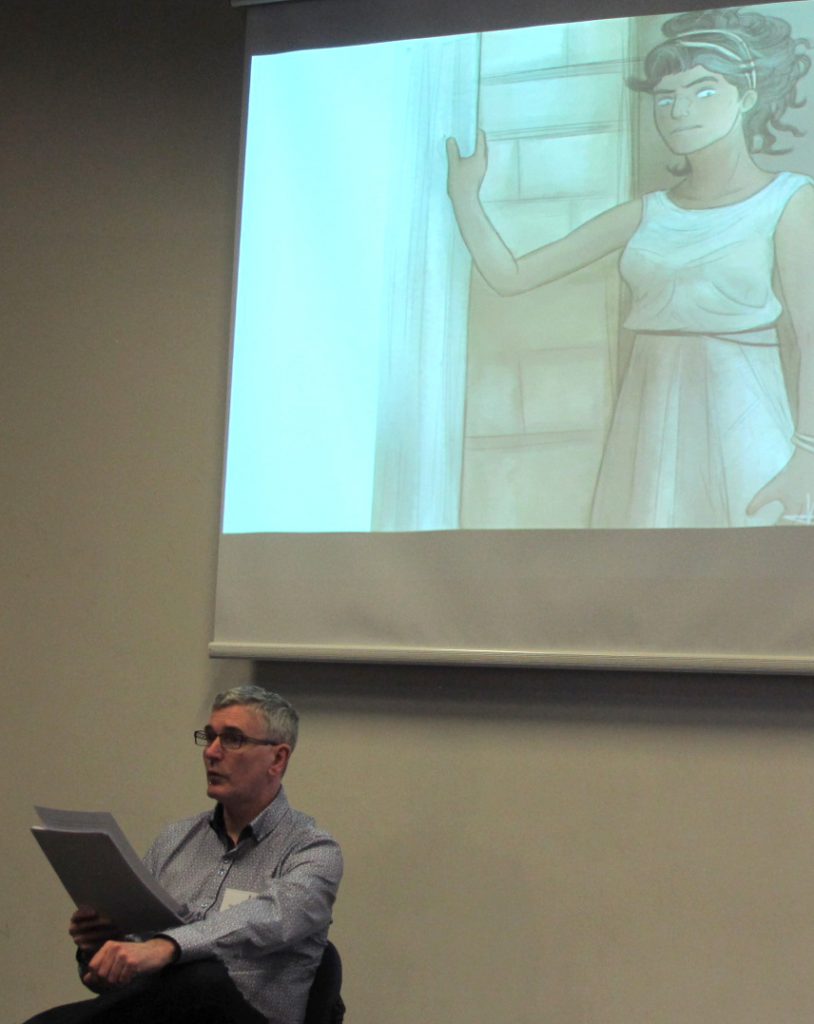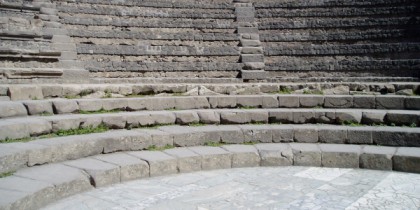September 20, 2016, by Will Leveritt
Contemporary Productions of Greek plays
Text by Lynn Fotheringham
For the last two years, almost all my leisure-time has been taken up with running around the country trying to see as many as possible of the productions of Greek tragedy that were being put on. I fitted in three Medeas, three Oresteias, two Antigones, one Bakkhai, one Women of Troy, one Oedipus and two meditations on Iphigenia at Aulis – and I still didn’t get to see everything… The great tide of Greek tragedy productions on the UK stage seems to be ebbing now – it’s almost a relief!
I only know of two productions this autumn – although there may be others I haven’t discovered. The triennial Cambridge Greek Play is back with a double-bill of Sophocles’ Antigone (tragedy) and Aristophanes’ Lysistrata (comedy) – in ancient Greek. There are matinee and evening performances every day from 12th-15th October at the Cambridge Arts Theatre; tickets are going fast.
The Royal Lyceum, Edinburgh / Actors Touring Company are producing Aeschylus’ Suppliant Women in a new translation by David Greig, writer of the wonderful 2007 Bacchae. The description of the new production begins: ‘Fifty women leave everything behind to board a boat in North Africa and flee across the Mediterranean’ – suggesting that the refugee-crisis has been the inspiration for reviving this rarely-seen play, one of the earliest we have, with only three characters besides the Chorus. It’s not the only production inspired by or even involving refugees: I missed the Syrian version of Euripides’ Trojan Women. If anyone saw it and would like to send me a review for the CADRE Facebook page, please do! (See also Euripides’ Hecuba on Delos.)

Mosaic depicting theatrical masks of tragedy and comedy (Thermae Decianae), by Carole Raddato/Speravir, Wikimedia Commons
The new production of Suppliant Women will be put on in Belfast (21-22/10) and Newcastle (03-05/11) as well as Edinburgh (1-15/10). In each location the Chorus will be played by local women, recruited and trained by the company. This is a fascinating echo of ancient practice, also used in last year’s Oresteia at Manchester’s Home Theatre. Ancient practice will also be followed in casting the same actor as Danaos and the Herald, respectively arguing that the suppliants should be granted asylum/returned home.
Casting the net a bit wider for Classics-related productions, Shakespeare’s Roman Britain is to the fore in the RSC’s Cymbeline (Stratford till 15/10, Barbican 31/10-17/12, live in cinemas next Wednesday) and the Globe’s modernised, woman-centric re-envisioning of the same play, Imogen (till 16th October).

Mike Carey, author of The Girl with All the Gifts, reads an earlier version of the story at a Nottingham conference in January .
And for something completely different: you might not think a zombie-movie would be likely to have a Classical connection, but the title of The Girl With All the Gifts (opening at the Broadway and elsewhere this Friday) is a translation of Pandora. The protagonist hears the story of Pandora at school, and later finds herself having to decide whether or not to open a box of horrors for the human race. I was lucky enough to see a press showing and can highly recommend the film, written by the wonderful Mike Carey.
Coming in spring: Antigone at UCL, Alcestis at KCL and Shakespeare’s Roman tragedies at the Barbican directed by the renowned Ivo van Hove.
If you know of other Classics-related theatre and cinema productions coming up, e-mail cadre@nottingham.ac.uk!
No comments yet, fill out a comment to be the first


Leave a Reply